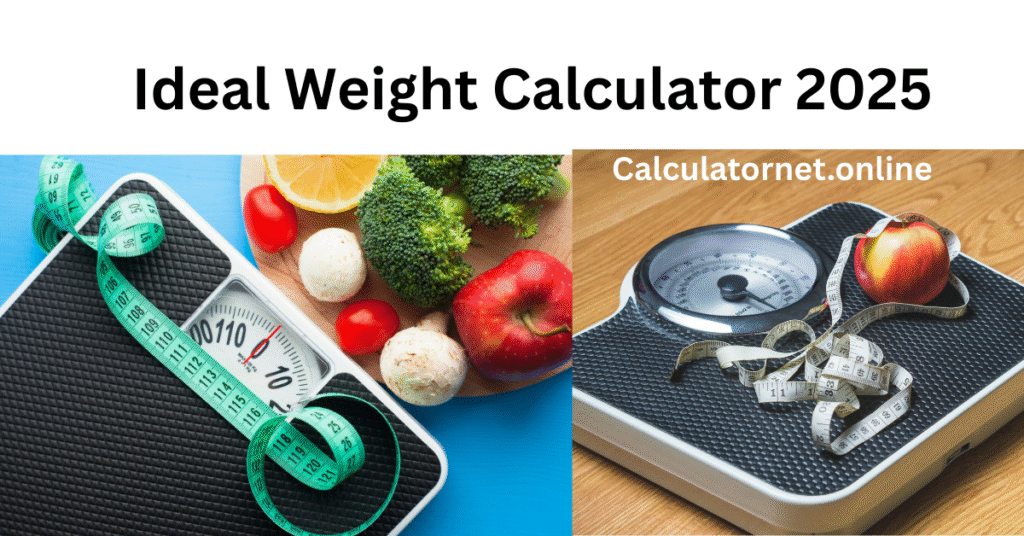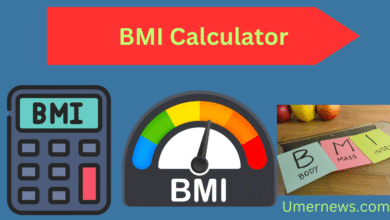Ideal Weight Calculator 2025
Ideal Weight Calculator 2025

Ideal Weight Calculator
Calculate your ideal body weight using multiple scientific formulas
Calculating your ideal weight…
About Ideal Weight Formulas
- Hamwi Formula (1964): Widely used in clinical settings, based on height and gender
- Devine Formula (1974): Originally developed for drug dosage calculations
- Robinson Formula (1983): Modification of Devine formula with different coefficients
- Miller Formula (1983): Another variation focusing on lean body mass
- Frame Size: Body frame affects ideal weight by ±10%
- Age Consideration: For ages 2-20, BMI percentiles are more appropriate
Ideal Weight Calculator 2025: Your Health Starting Point
Meta Description
Unlock your health potential with our Ideal Weight Calculator 2025. Discover what your ideal weight range is and learn how to achieve it. Start your health journey today!
Introduction
Have you ever wondered what a healthy weight looks like for you? The number on the scale can be a confusing thing. It’s easy to get caught up in comparison or unrealistic goals, but true health isn’t a one-size-fits-all equation. This is where an ideal weight calculator 2025 comes in. Think of it not as a judgment, but as a starting point—a helpful tool to understand a healthy weight range that’s right for your body.
In this post, we’ll demystify the concept of ideal weight, explain how these calculators work, and show you why a holistic approach to health is more important than a single number. We’ll also provide practical tips and insights to help you on your health journey, regardless of where you start.
Understanding the Science Behind Ideal Weight
What exactly is “ideal weight”? It’s the weight range at which you are least likely to suffer from weight-related health issues. Scientists and doctors use several formulas to determine this range, with each one offering a slightly different perspective. These calculations consider factors like height, age, gender, and even body frame to give you a personalized estimate.
How an Ideal Weight Calculator Works
An ideal weight calculator isn’t just a simple formula; it uses established metrics to provide a data-driven estimate. The most common formulas are:
- BMI (Body Mass Index): This is a widely used measure that divides your weight in kilograms by the square of your height in meters. It’s a quick way to screen for weight categories but doesn’t account for muscle mass or body composition.
- Hamwi Formula: Developed in 1964, this formula is a simple calculation based on height and gender. For men, it starts with 106 pounds for the first 5 feet of height, adding 6 pounds for each additional inch. For women, it’s 100 pounds for the first 5 feet, plus 5 pounds for each inch.
- Devine Formula: This is a more modern take on the Hamwi method, often used by medical professionals. It calculates ideal body weight (IBW) for medication dosages, making it a very reliable tool.
- Broca Index: A very straightforward formula from the 19th century. Your ideal weight is your height in centimeters minus 100 for men, or 105 for women.
Each method has its strengths and weaknesses, but together, they paint a clearer picture of a healthy weight for your unique body type.
Why Muscle Mass Matters More Than the Scale
It’s a common misconception that a lower number on the scale always means you’re healthier. The truth is, muscle is denser than fat. So, two people of the same height and weight might look completely different, and one could be significantly healthier.
This is why focusing solely on a number from an ideal weight calculator 2025 can be misleading. A bodybuilder, for example, might be classified as “overweight” by a simple BMI calculator due to their muscle mass, even though their body fat percentage is very low. A holistic approach to health involves paying attention to:
- Body fat percentage: A key indicator of health.
- Waist circumference: A measure of abdominal fat, which is linked to heart disease.
- Energy levels: How you feel throughout the day.
- Overall fitness: Your strength and endurance.
Don’t let the scale be your only guide. Focus on building healthy habits that make you feel good and strong.
Tips for a Sustainable Health Journey
Achieving and maintaining a healthy weight is a marathon, not a sprint. Here are some actionable tips to help you on your way:
- Set realistic goals: Don’t aim for an overnight transformation. Small, consistent changes lead to lasting results.
- Prioritize nutrition: Focus on whole, unprocessed foods. Incorporate a balanced mix of protein, healthy fats, and complex carbohydrates.
- Stay active: Find a physical activity you enjoy. It could be brisk walking, dancing, cycling, or weightlifting. Consistency is key.
- Get enough sleep: Lack of sleep can disrupt hormones that regulate appetite, making it harder to manage your weight.
- Manage stress: High stress levels can lead to weight gain. Practice mindfulness, meditation, or other stress-reducing activities.
Remember, the goal is not perfection, but progress.
FAQ (Frequently Asked Questions)
Q: Is the ideal weight calculator 2025 a definitive medical diagnosis?
A: No, an ideal weight calculator is a general tool for guidance only. It provides an estimate of a healthy weight range based on widely used formulas. For a personal medical assessment and advice tailored to your health needs, always consult with a healthcare professional.
Q: Can a BMI calculator be misleading?
A: Yes, the BMI is a helpful screening tool, but it has limitations. It doesn’t differentiate between muscle mass and fat, which means athletes or very muscular individuals may be incorrectly classified as overweight, despite being in excellent physical condition.
Q: What is a healthy BMI range?
A: A healthy BMI range is typically considered to be between 18.5 and 24.9. A BMI below 18.5 is considered underweight, while a BMI of 25 to 29.9 is considered overweight. A BMI of 30 or higher is classified as obese.
Q: How often should I check my weight?
A: Weighing yourself too often can be demotivating. It’s better to check your weight once a week, at the same time and on the same day, to get a more accurate trend of your progress.
Q: What is the most accurate way to measure ideal weight?
A: While calculators are useful, the most accurate methods involve professional assessments. These can include a body composition scan (like a DEXA scan) or a consultation with a registered dietitian who can take your individual health history and lifestyle into account.
Q: Does age affect my ideal weight?
A: Yes, age is a factor. Metabolism naturally slows down as we get older, and body composition changes. Some ideal weight formulas, like the Devine formula, take age into account to provide a more accurate estimate.
Q: What is the difference between ideal weight and target weight?
A: Ideal weight is a general, healthy range determined by a formula. Target weight is a specific, personalized goal you set for yourself. Your target weight should be within a healthy range and agreed upon with a healthcare professional.
Conclusion
The ideal weight calculator 2025 is a powerful first step on your health journey. It offers a clear, data-driven starting point, but it’s important to remember that it’s just one piece of a larger puzzle. True health is a blend of nourishing your body with good food, staying active, getting quality rest, and managing stress. Use the calculator as a guide, but listen to your body and focus on sustainable habits that make you feel your best.
What are your thoughts on using a calculator to determine ideal weight? Share your own experiences or questions in the comments below!





